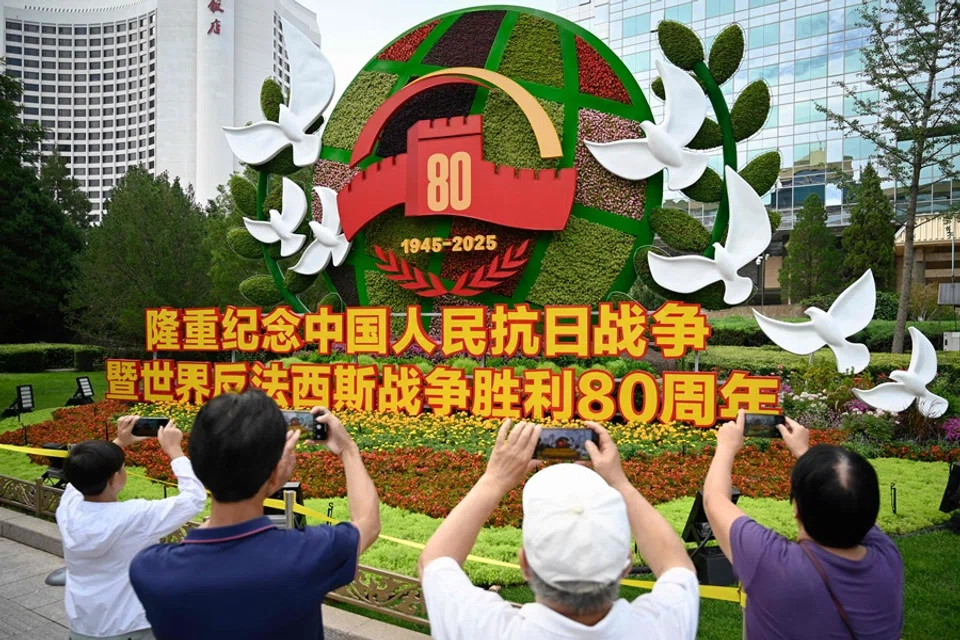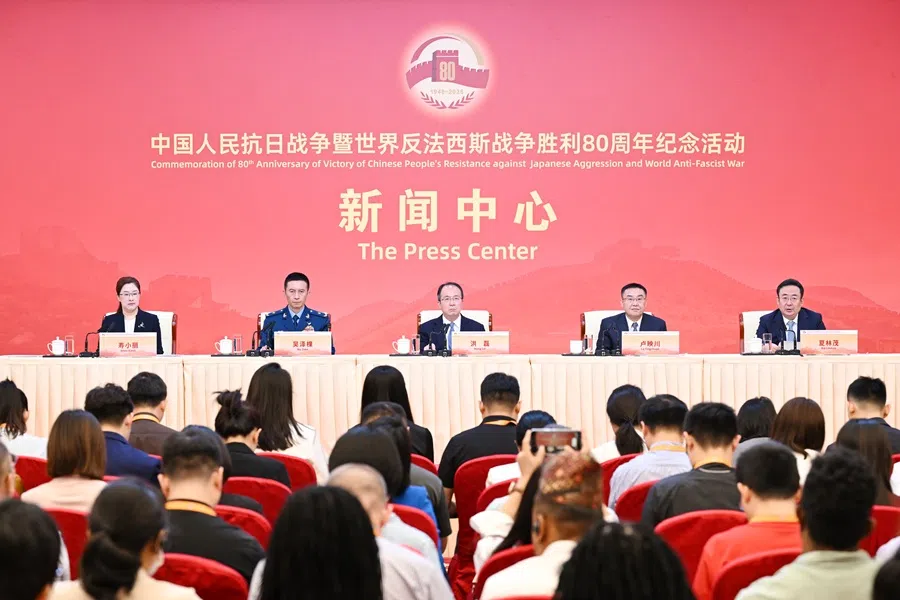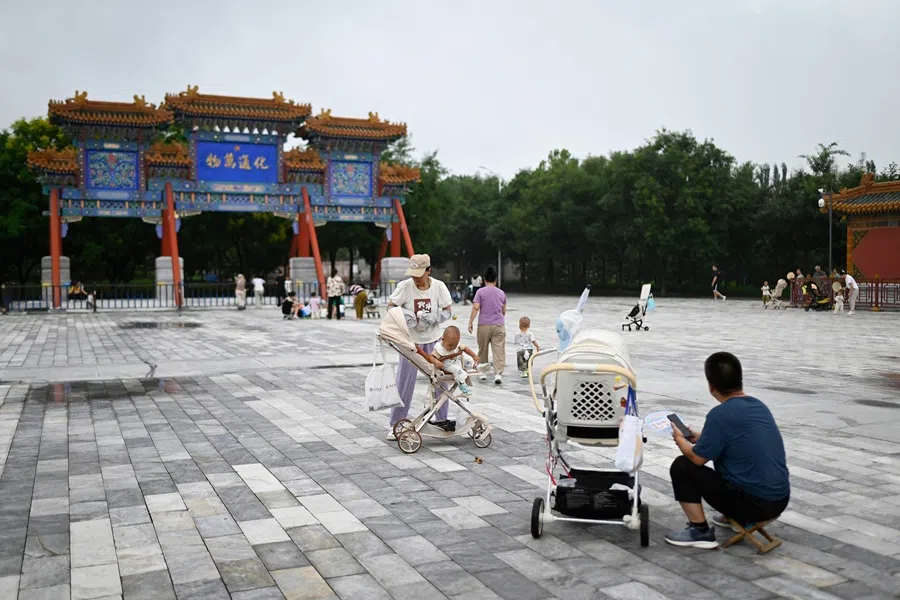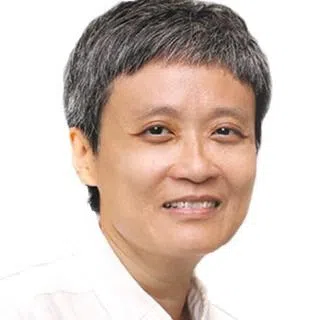As the West watches, China stages a new global order from Tiananmen
As China marks the 80th anniversary of the end of the Second Sino-Japanese War — with no Western leaders attending — could the joint appearance of Xi Jinping, Vladimir Putin and Kim Jong Un, alongside strong global south participation, signal a shift in global alignment and power? Lianhe Zaobao correspondent Sim Tze Wei analyses the optics.

North Korean leader Kim Jong Un is set to attend for the first time China’s military parade commemorating its victory in the Second Sino-Japanese War. On 3 September, he is expected to stand atop Tiananmen Gate alongside Chinese President Xi Jinping and Russian President Vladimir Putin — marking a historic moment as the leaders of China, Russia and North Korea appear together.
Interviewed academics suggest that, with all three countries at odds with the US and much of the West, their high-profile joint appearance signals a united front in defending national interests. Some further argue that this joint appearance could strengthen Beijing’s leverage in negotiations with Washington, increasing pressure on the US to create favourable conditions for a potential summit between Xi and US President Donald Trump.
A joint appearance
The first press conference on preparations for the Victory Day commemorations was held in Beijing on 28 August, during which China’s Assistant Foreign Minister Hong Lei announced that 26 foreign heads of state and government would attend the event, including Putin and Kim.
Ten years ago, during China’s first 3 September military parade, North Korea sent Choe Ryong-hae — a member of the Workers’ Party of Korea Political Bureau Presidium and Central Committee — as its representative. Kim’s rare appearance next week will mark several historic firsts.
It will be Kim’s first visit to China since 2019, likely his first time participating in a major multilateral diplomatic event and believed to be the first time in 66 years that a North Korean leader will be attending a Chinese military parade. The last was in 1959, when then-leader Kim Il-sung attended China’s National Day parade.
... aside from the Serbian president and Slovak prime minister, no current leaders from Western countries or the European Union will be attending; second, there will be strong participation from global south countries.

During the Q&A session, Hong said the Chinese and North Korean peoples supported each other in resisting Japanese aggression and made “important contributions to the World Anti-Fascist War and the just cause of humanity”. He said that safeguarding, consolidating and developing China-North Korea relations was the firm position of the Chinese Communist Party and the Chinese government. He added that China stood ready to coordinate closely with North Korea on promoting the peace and stability of the region and safeguarding international fairness and justice.
Who’s coming?
Beyond the spotlight on the joint appearance of the Chinese, Russian and North Korean leaders, observers have noted two key points in the guest list for the 3 September parade: first, aside from the Serbian president and Slovak prime minister, no current leaders from Western countries or the European Union will be attending; second, there will be strong participation from global south countries.
Iran — regarded by the West as being part of the “axis of evil” — will attend the event, represented by President Masoud Pezeshkian. Ten years ago, Iran was not included in the list of foreign dignitaries at China’s Victory Day parade. The same goes for Turkmenistan, Azerbaijan and Armenia. During the Q&A session, Hong stated, “The collective rise of the global south is fundamentally changing the world landscape.”
All ASEAN member countries except Thailand and the Philippines have representatives on the guest list. Singapore will be represented by Deputy Prime Minister Gan Kim Yong. Indonesian President Prabowo Subianto and Malaysian Prime Minister Anwar Ibrahim will also be attending; ten years ago, Indonesia and Malaysia only sent special envoys and ministers.
Strategic considerations
Lye Liang Fook, senior fellow at the Yusof Ishak Institute in Southeast Asia, analysed that the enthusiastic participation of global south countries meant that Beijing was skillfully seizing the opportunity presented by the strategic withdrawal of the Trump administration, leveraging on multilateral organisations such as the Shanghai Cooperation Organisation and BRICS to exert influence and gradually fill the leadership vacuum left by the US.
... Kim Jong Un was aware that solving issues like food and energy shortages would still depend on China, and attending the Victory Day parade was a move to improve China-North Korea relations. — Professor Kang Jun-young, Hankuk University of Foreign Studies

Kang Jun-young, a professor at the Hankuk University of Foreign Studies, stated in his analysis of the joint appearance of China, Russia and North Korea that these three countries were each pursuing their own interests by sharing the stage.
He noted that the domestic situation in North Korea was not ideal, and although Russia-North Korea relations have been constantly growing closer since the outbreak of the Russia-Ukraine war, Kim Jong Un was aware that solving issues like food and energy shortages would still depend on China, and attending the Victory Day parade was a move to improve China-North Korea relations. Meanwhile, China — in a bid to avoid losing influence over the Korean peninsula — was using the timing of the parade to court North Korea.
Kang Jun-young, Lye Liang Fook and Sung Wen-ti, a researcher at US think tank the Atlantic Council, all felt that Beijing was using the joint appearance of China, Russia and North Korea to counter pressure from the US and the West, including the US-initiated trade and tariff war against China as well as Western sanctions against Russia.
... the most substantive achievement in China’s home ground diplomacy would be the personal attendance of the leaders of Indonesia and Malaysia at the parade. — Professor Shi Yinhong, School of International Studies, Renmin University of China
Sung further analysed that the joint appearance would likely force the US to create favourable conditions to secure a meeting between Xi and Trump. Lye analysed that Beijing could use this as a warning to the US not to exert pressure on China on the issue of Chinese procurement of Russian oil.
Professor Shi Yinhong of Renmin University of China’s School of International Studies thought that the West would not be overly concerned about the joint appearance of the Chinese, Russian and North Korean leaders, as the strategic partnership among these three countries has long been a given. Moreover, the most substantive achievement in China’s home ground diplomacy would be the personal attendance of the leaders of Indonesia and Malaysia at the parade.
This article was first published in Lianhe Zaobao as “金正恩出席九三阅兵 中俄朝高调同台力抗美国”.





